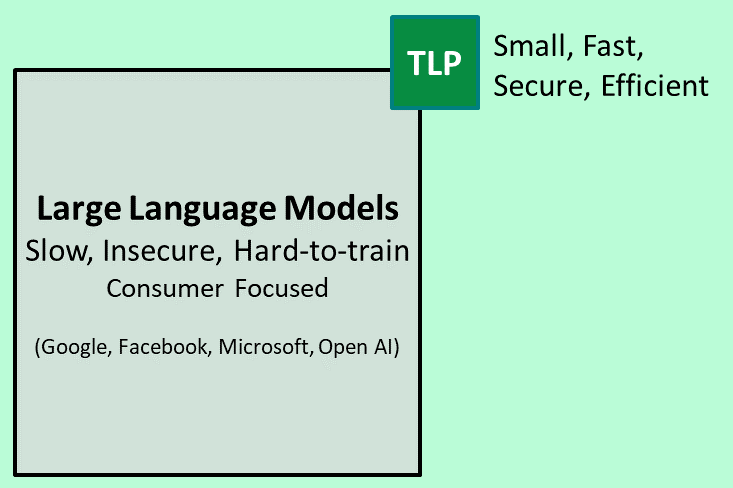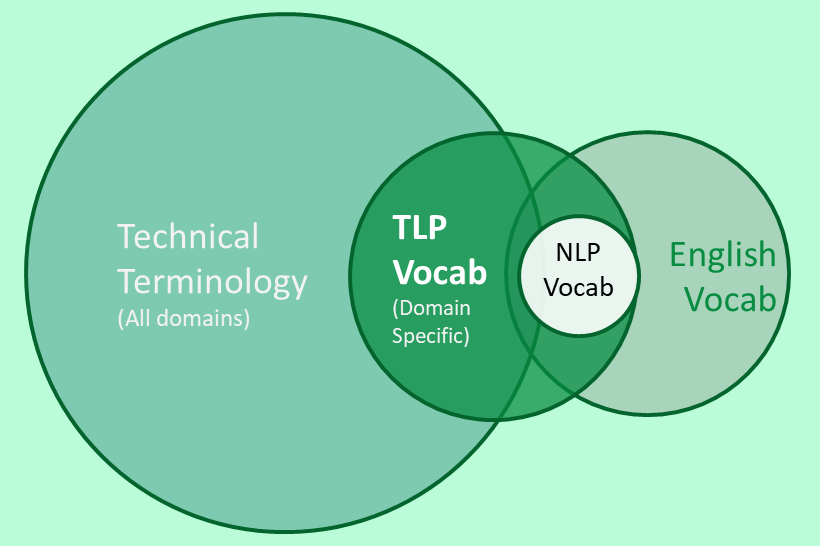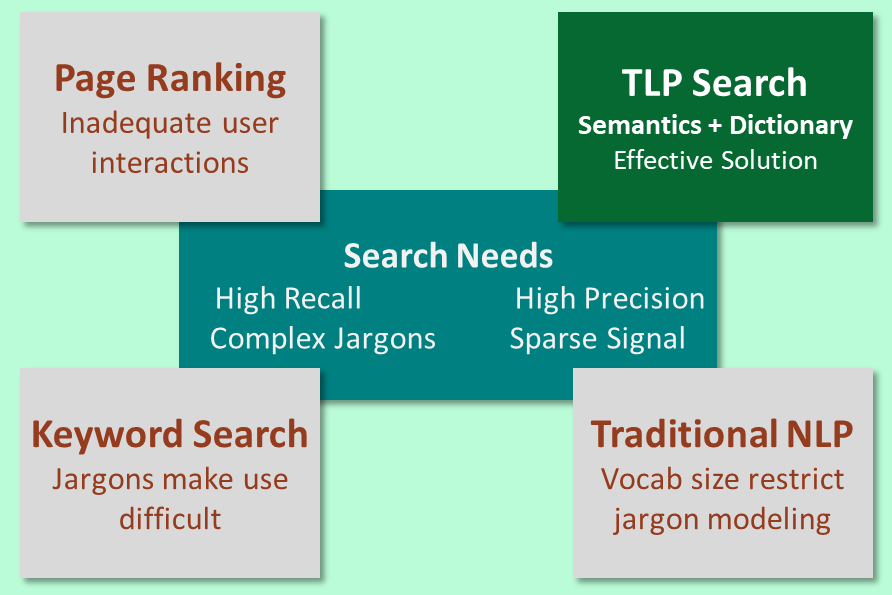Technology
TLP.ai focuses on applying cutting-edge Artificial Intelligence (AI) to solve practical challenges facing technology orgs. We leverage open source models where available and add proprietary technologies to improve efficacy.
Our fast technical semantic engine forms the foundation of our products. An automatic AI technical dictionary complements the semantic engine and accurately represents any organization’s jargons.
An AI semantic search engine helps users quickly and accurately find information from large technical repositories. An AI model reconstructs document structure from layout information in formats such as PDF. We are developing many new technologies. Contact us to learn more.

TLP Semantic Processing Engine
A small, fast, efficient computational linguistics model forms the foundation of TLP capabilities. The TLP engine is optimized to accurately model the semantics and context in technical micro-domains.
The TLP engine starts with one of several cutting-edge natural language models. TLP then uses proprietary technologies such as semantic densification, adaptive masking and supervised fine-tuning to optimize for technical jargons.
By focusing on semantic representation, TLP engine is able to achieve world-record performance on several benchmarks (CoLA, QQP, MLNI). A key differentiator for the TLP engine is the model size (Less than 1% in size compared to other models such as GPT-3). Another differentiator is the TLP speed – a critical requirement for processing large technical repositories responsively. TLP semantic engine was initially developed under USAF, DARPA and MDA innovation contracts.
TLP Automatic Technical Dictionary
Most technical organizations develop jargons and abbreviations to efficiently communicate technical information. These jargons are dynamic – changing over time. These jargons differ based on disciplines and locations.
TLP automatically scans document repositories to build and maintain the technical dictionary. TLP dictionary leverages a custom syntax structure to organize the dictionary. Manual supervision is integrated to ensure quality.
TLP dictionary is designed to support the most complex large organizations. The dictionary is able to different expansions for the same letter abbreviations and different meanings for the same term. By improving jargon understanding, TLP dictionary improve communication across engineering teams. TLP dictionary integrates with the semantic search engine to improve search results.
TLP Semantic Search Engine
Traditional keyword search is inadequate due to complex jargons and abbreviations. Traditional page ranking is ineffective because most documents are not accessed frequently enough for ranking engines to learn use patterns
TLP integrates the semantic engine and the technical dictionary to build a fast and accurate search engine. TLP automatically generates synonyms of user queries and prioritizes results based on technical context.
TLP search engine enables fast and accurate search of complex technical repositories. Integration with the AI document structure reconstruction model allows TLP search to navigate to the right paragraph within any document. Our regulation search products demonstrate some of the capabilities of TLP search.
TLP AI Document Structure Reconstruction
Document file formats such as PDF do not conserve document structure (such as paragraphs, heading, tables, etc.). Each line in the document is represented as a block of text. Lack of structure makes it difficult to accurately model the semantics of technical text.
TLP is developing highly accurate (>99%) AI models to automatically reconstruct document structure without human intervention.
TLP document structure reconstruction enables accurate semantic searching of PDF documents. The document structure further enables the search engine to navigate to the right paragraph in a large document, improve efficacy. Accurate document structure enables the AI dictionary tool to accurately build and maintain technical dictionaries.
TLP Technologies Under Development
We are developing many new AI technologies to help practical engineering and technology challenges. These include: Few-shot Classifiers, Summarizers, Recommenders, Authoritative Source Builders, etc. Along with our parent Inspird we have several contracts from DARPA, MDA and USAF. Please contact us to learn more.




